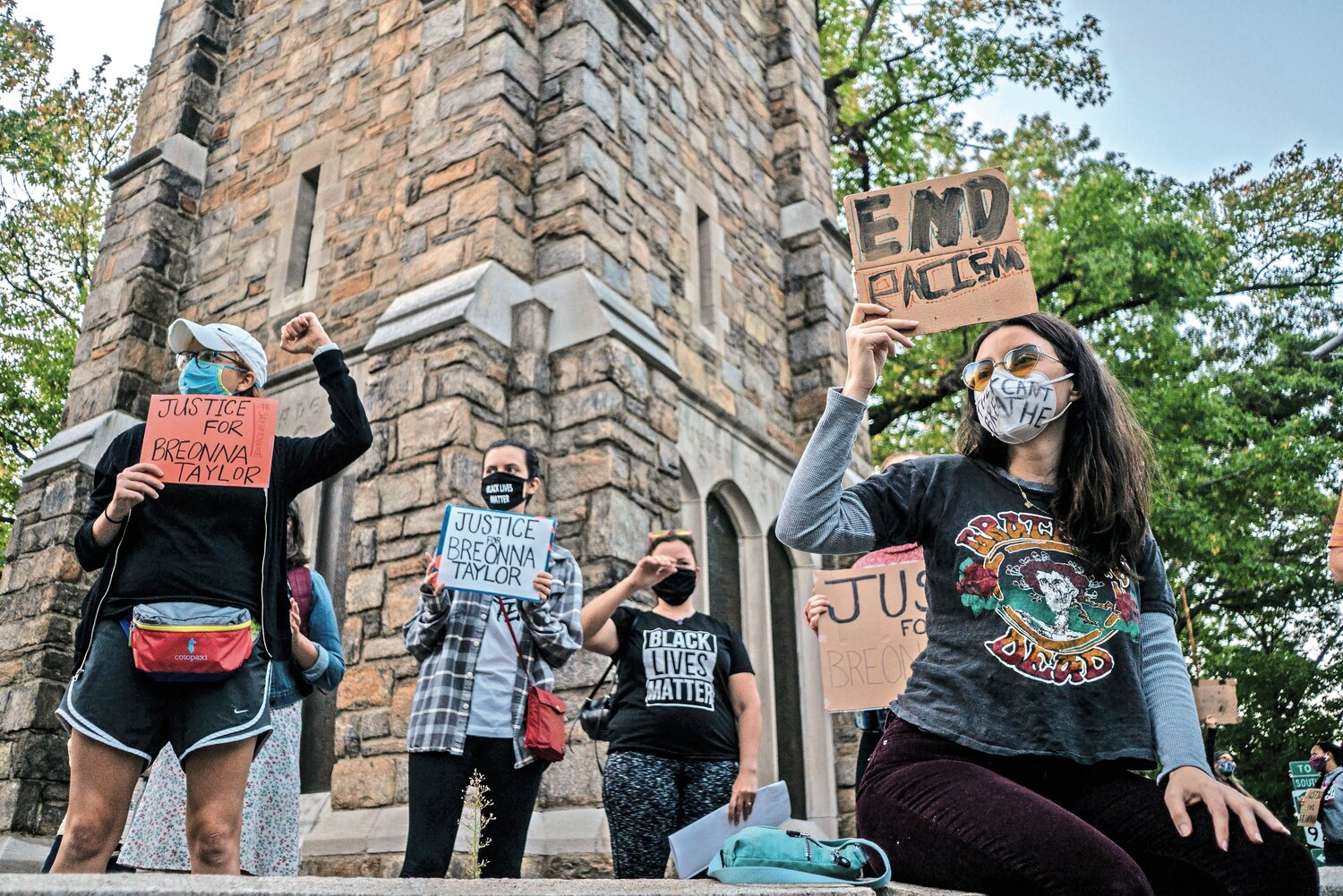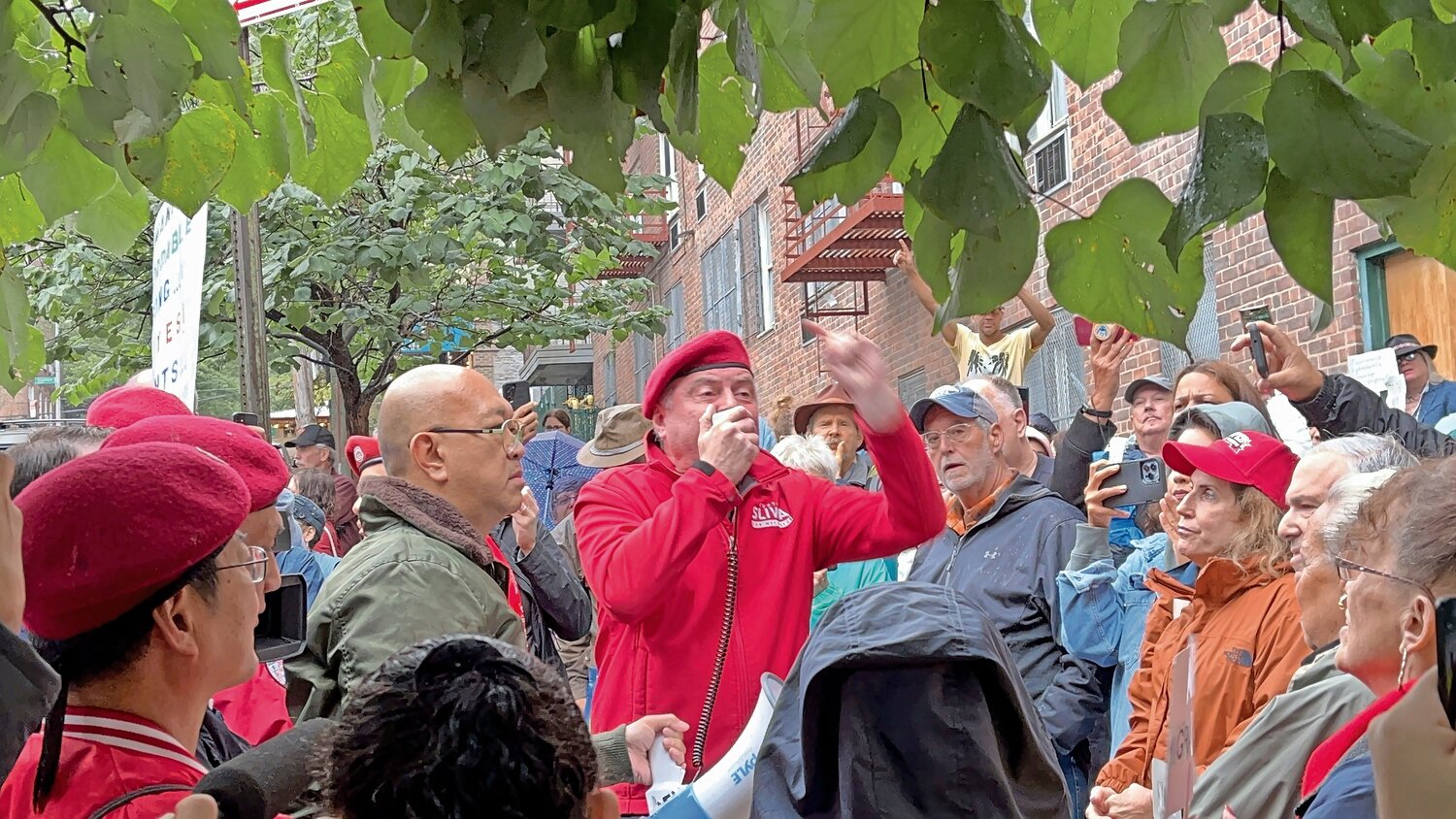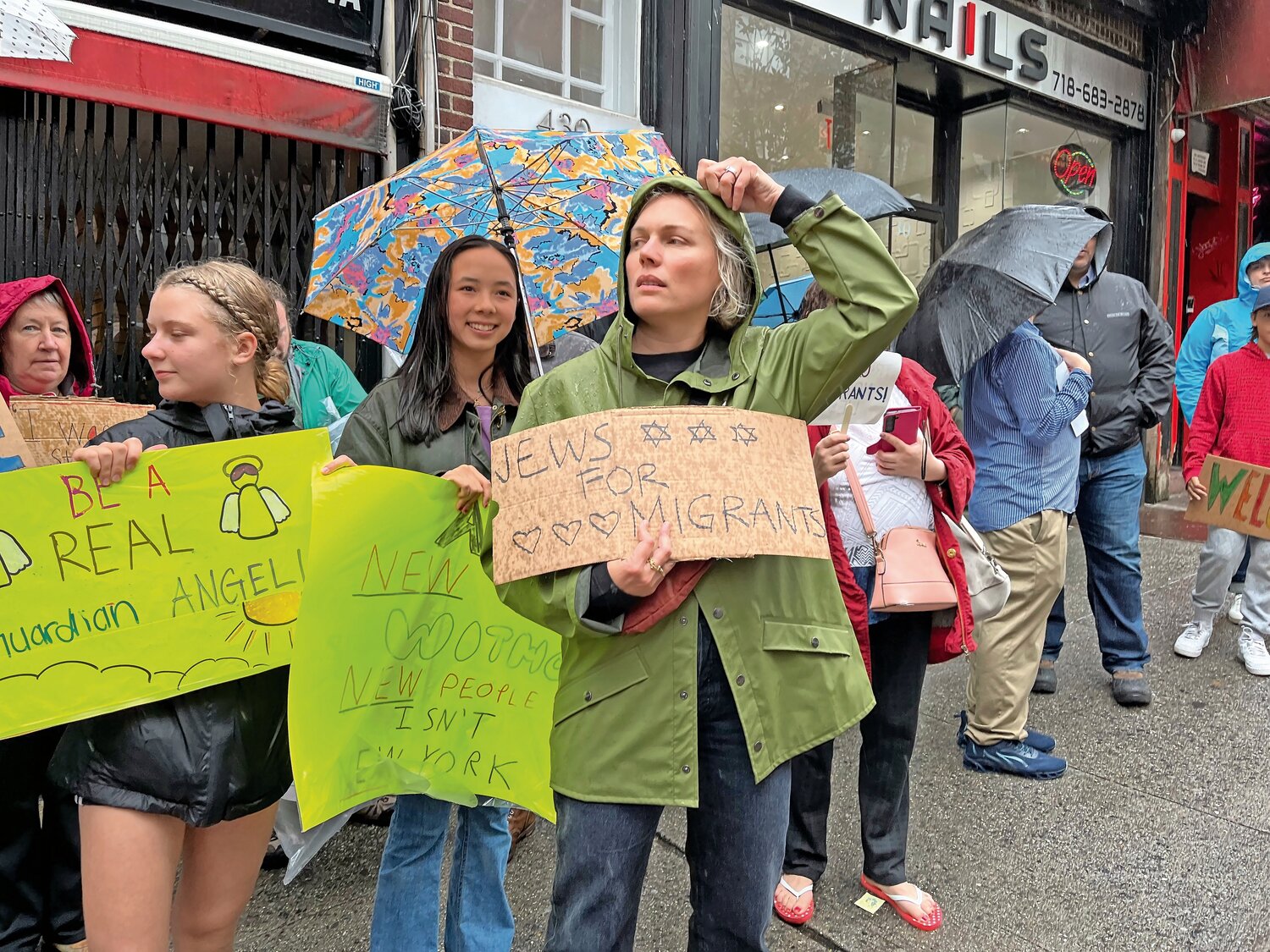Activists critique bills criminalizing protests
They’re protesting a pair of bills they say would limit their ability to protest. And they have their sights on one of the lawmakers who sponsored that legislation: Assemblyman Jeffrey Dinowitz.
It’s called the Dialogue and Decorum Act, introduced by Queens Assemblyman Sam Berger, that could subject a protester to misdemeanor charges if they disrupt someone who is delivering a public speech.
Another bill, backed by Queens Assemblywoman Stacey Pheffer Amato, would charge anyone blocking a street or bridge with “domestic terrorism” — punishable by up to seven years in prison.
Neither bill belongs in this country, let alone in Albany, according to Jennifer Scarlott, coordinator of North Bronx Racial Justice and Bronx Climate Justice North. Criminalizing dissent, she said, puts the country on a quick road to fascism.
“To my mind, as somebody who’s organized a lot of protests with the two groups that I help coordinate,” Scarlott said, “the idea of going to the very people you are protesting who defend the kind of society that you’re arguing with and seeking their permission to exercise what are supposed to be constitutionally protected rights, is ridiculous.”
That sentiment was shared by the Bronx Anti-War Coalition, a pro-Palestinian group who recently interrupted an event hosted by U.S. Rep. Ritchie Torres while also marching outside his office in protest of his support of Israel over the conflict in Gaza.
“Historically, fascist legislation has never been announced as such,” the coalition said, in a statement. “When introduced, it’s regularly couched in benevolent terms and presented as common-sense measures to ensure ‘law and order’ and other pleasant goals.
“These bills are no exception. Who isn’t for ‘decorum?’ As for stopping ‘domestic terrorism,’ what chaotic criminal would object to that? But when one reads the text of these proposals, their intention and application in real life becomes chillingly clear.”
The group argued that the two “subtly toxic” bills hold the potential to shutter almost all avenues of dissent. They called for New York residents to carefully contemplate how such legislation would enable the “draconian punishment of activism,” and ultimately tell their lawmakers to say no to the bills.
Dinowitz defended the bills, saying there’s nothing fascist about them.
“As a person who himself has engaged in various marches against a war, participated in the George Floyd protests, pro-Israel rallies and other things over the years — as a person who was arrested after the police shooting of Amadou Diallo — I would be the last person to suggest that people don’t have the right to protest,” Dinowitz said.
“But what they don’t have the right to do is infringe on others, and that’s what some of these protesters do on a regular basis. I guarantee you that they are not winning over people to their cause as a result of that. If anything, they’re getting people angry at them.”
But that’s something people should ultimately decide, not lawmakers, said the New York Civil Liberties Union, which described the bills as “dangerous.”
“These performative, reactionary attempts to criminalize political disagreement and prosecute people for speaking up clearly violate the First Amendment,” said Justin Harrison, senior policy counsel at the NYCLU. “Policies like these are dangerous overreaches that would likely lead to arbitrary enforcement — stifling political speech and constitutionally-protected actions that the government disagrees with.”
Carol Spivack, the former director of the Riverdale Temple Nursery School, has been coming to the Bell Tower Monument with a sign reading “Equal Justice For All” since the murder of George Floyd in 2020. She agreed with Dinowitz there should be some kind of punishment for those who interrupt a speaker or block a street.
However, she finds the legislation’s punishment in these particular bills too strict and too extreme.
“I don’t think anything should be called ‘domestic terrorism’ unless you’re blowing something up or machining people down,” Spivack said. “Otherwise, that word is too freely used and it loses its meaning. I think that at a lecture, if someone is giving a talk and people are disruptive, they should be removed, requested to leave, or guards should come and remove them.”
Dinowitz did admit he was unsure he agreed with all of the bill’s language, but still believes it’s important to make a statement on his part in light of protests going on in the city right now.
“I don’t necessarily think the Amato bill in particular is the perfect bill, I really don’t,” he said. “And I may not agree with a 100 percent of what’s in the bill. But what I do think is it gave me the opportunity to make a statement. I went to anti-war protests as early as when I was 17 years old, and it would have never occurred to me to stop people, stop cars, from going to hospitals or people going to airports and things like that where you’re preventing other people from exercising their rights.”
Recnt protests — including those from pro-Palestinian groups speaking out over Israel’s response to the Oct. 7 terrorist attack — have reportedly blocked parades and streets in calling for a ceasefire in the conflict.
Scarlott, who has attended weekly pro-Palestinian protests, said the movement of the bill is part of the state’s effort to shut down actions like the Boycott, Divestment and Sanction movement against Israel.
“It’s ludicrous,” Scarlott said of the two bills. “The Dialogue of Decorum Act makes me think of respectability politics, which is all about trying to rein in people who dissent in our society, and shaming them by telling them they’re not being decorous, or polite or respectable.
“We should be doing exactly the opposite in this country. We should be encouraging independent thought, thoughtful dissent, and not looking for ways to penalize it and scare people away from engaging in it.”












